A copy of a speech on the topic of the missing elements from school education, given by former Prime Minister Tony Abbott in America, was published in the local media. In brief, he argued that two things are absent from Australia’s schooling, those being the New Testament’s part in our culture and a narrative history of:
‘…our story from Abraham, Jacob, and Moses, our fathers in faith, through the ancient Greeks and Romans, to Alfred the Great, Magna Carta, the Provisions of Oxford, the Reformation, the Enlightenment, the Glorious Revolution, an American Revolution…’
While I don’t disagree with his history course, there is a much wider gulf in today’s education that needs to be filled and the major element of it is the study of Western literature. I am not referring to books of poetry or even romantic novels.
Speaking of the last two events to which Mr Abbott refers, it might be useful to know that the literature of the English philosopher, John Locke, played a pivotal part in their success. The study of Locke’s written books would show why he is known as the father of modern republican government, not to mention the father of constitutional monarchy. The close and careful study of books was once the hallmark of a liberal education.
Mr Abbott is not alone in despairing of the school curriculum, but if you bear in mind that all of the teachers, the panels setting curriculum, and the education experts come out of the universities, the root cause of the failure in schools must surely be what is being taught by the universities where the larger part of that curriculum is regulated only by peer opinion.
A significant part of the secondary school curriculum involves the teaching of the rudiments of science. Students who study science at university graduate technically proficient in their discipline of choice, but it is not unfair to say they lack any knowledge that would lure them away from the sporting pages of a paper to any discussion of the relationship between democracy and representative government.
Their lecturers are confident that having passed their expert knowledge to the student, the student can be relatively confident of finding employment in that field.
The Chinese government knows implicitly that education is important for Chinese industry and the vast majority of Chinese students study STEM subjects – science, technology, engineering, and maths – so that the Chinese industry has a skilled labour force. Although they deny it, Australian governments of all persuasions have the same view.
Yet education has always been thought by sensible people to be more than a trade skill. Why do parents pay for their children to learn music or ballet if they don’t think that there is much more to education than STEM?
Tony Abbott suggests the school curriculum be expanded to include religion and a narrative history of the English speaking world. He even suggests that Winston Churchill’s book of that name be read. I would endorse his suggestion, indeed any or all of Churchill’s books will enrich a student’s mind, but not only as an historical narrative.
Winston was one of those rare birds in that he was not only a wise man but was able to convey lessons of practical wisdom from which some future statesmen might learn.
Education is more than learning scientific formulae, laboratory practice, and mathematics, as important as they are. Education not only conveys knowledge to children; they learn to think by learning. Knowledge was once known as food for the soul, but if the analogy of food for the human body is kept in mind, there will be some knowledge that satisfies the highest need of the soul and generates an excellence of the soul to a higher degree than other soul food.
What is the knowledge that cultivates the excellence of the human mind?
Much of what students learn will relate modern science to modern industries that reflect the direction of modern technology. That was the promise made by the Enlightenment for the project of modern science with which nature was to be overcome and its secrets revealed. And the promises of fabulous wealth and benefits that will accrue to everyone continue to grow.
The irony is that, despite its reputation for revealing the truth, modern science is unable to prove that modern science and technological advances are good, useful, or just. It can’t even prove that it is wrong to tell lies. It cannot say if the total destruction of mankind is just or unjust.
The ambivalence of modern science to morality becomes critical when modern science is applied to human affairs through the social sciences – political science, psychology, sociology, and anthropology – for that impotence cannot be reconciled with the express needs of mankind to know the just from the unjust and to act upon that difference.
In order to avoid that fatal impasse those infatuated with modern science took the insane step of arguing that values, good and bad, the just and unjust, as distinguished from facts did not exist. Objects, things, are facts you can know objectively; five million dead bodies are facts. Whether killing five million people is unjust is not a fact. It is a value, a subjective feeling.
As everyone’s feelings are private, values are relative to the individual. The result of their argument is that the law tells you not to kill. You obey that law, but not because it is moral, but because it has enormous, painful penalties for disobedience. This is the social science argument: politics is not about obtaining justice. Politics is about obtaining political power so you can help friends and hurt your enemies.
There can be no common good if all values are relative. Society slowly unravels because laws relating to the common good are regularly changed to suit the party in power. Modern science has left man in a crisis. He has awesome power, but cannot trust his reason to say what is good. Modern science says there is moral reason why he shouldn’t use political power to benefit himself.
It was not always so. To be clear, modern science, which is essentially mathematical, replaced an older science. The old science, which ruled before the Enlightenment, was concerned to know the difference between the just and the unjust, a difference that only came to light in the contemplation of the perfectly just political regime, the regime in which the excellence of man was co-eval with wisdom as the criterion for ruling.
If the just society depends on the wisdom of its rulers, it must be dedicated to the pursuit of that human excellence and it must be ruled by men who are themselves dedicated to that end. Those men were known as perfect gentlemen and they became gentlemen through a liberal education. A liberal education is the highest duty of a good society.
A liberal education seeks to perfect the highest in man which is human reason. When Mr Abbott spoke about the Bible and Christianity, he was referring to what is frequently called the Judaeo-Christian tradition, except our tradition has two roots: the Judaeo-Christian and the Greek.
It speaks with two tongues and they are often opposed to one another. That conflict, identified in literature by their respective cities, Jerusalem and Athens, is between the claim of an obedient love for God as Father and King and the idea expressed in the saying, ‘virtue is knowledge’.
It is that conflict that has kept the West awake and which is the secret of the intellectual and spiritual vitality of the West: to be a Western man means to be part of the continuing debate between Jerusalem and Athens.
A liberal education is a literate education, an education in the literature that supports one side or the other of the discussion. To meet that challenge and understand the arguments, Western man must learn how to think again, even though one cannot learn to think, except by thinking.
But from whom does a pupil learn to think? He learns to think from teachers, from teachers who were themselves originally pupils of former teachers. Except, at some point, there are teachers who were not themselves pupils. Those teachers who are not in turn pupils are the greatest minds and we must be thankful that they left behind their books.
A liberal education is the careful study of the books which the greatest minds left behind – a study in which the more experienced pupils assist the less experienced pupils, including the beginners. As greatest mind of the last century, Leo Strauss, explained:
‘Liberal education, which consists in the constant conversation with the greatest minds, is a training in the highest form of modesty, not to say of humility. It is at the same time a training in boldness: it demands from us the complete break with the noise, the rush, the thoughtlessness, the cheapness of the Vanity Fair of the intellectuals as well as of their enemies. It demands from us the boldness implied in the resolve to regard the accepted views as mere opinions.
‘A liberal education is the name that summarises the meaning of the Latin word, educere, to lead out; a liberal education leads students out of the darkness of ignorance about the highest things while supplying us with experience in things beautiful.’
Got something to add? Join the discussion and comment below.
Get 10 issues for just $10
Subscribe to The Spectator Australia today for the next 10 magazine issues, plus full online access, for just $10.

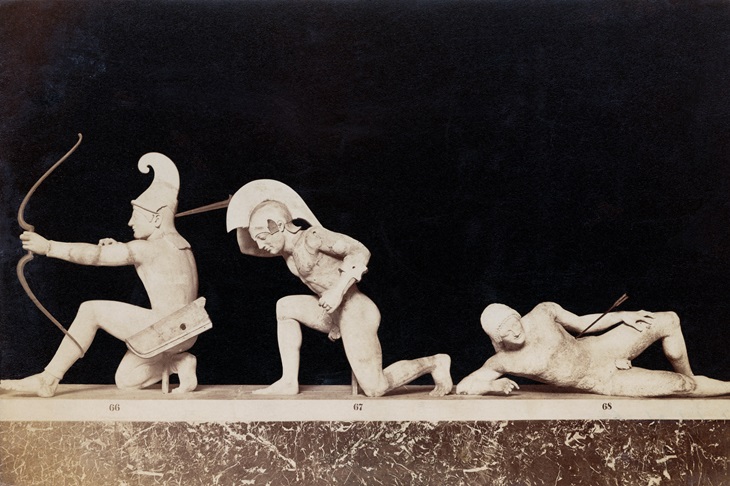
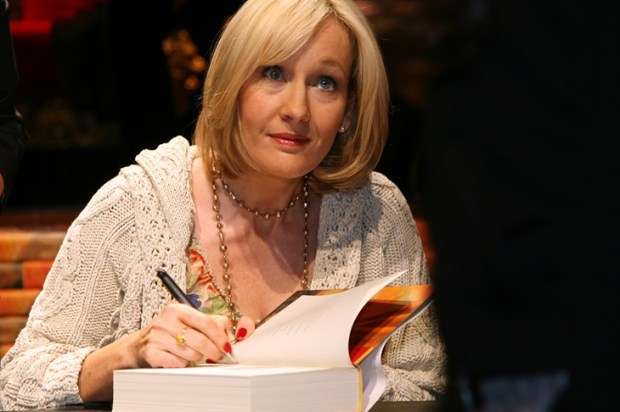
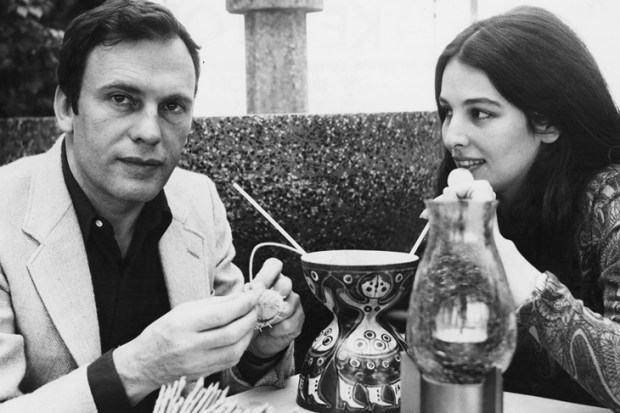
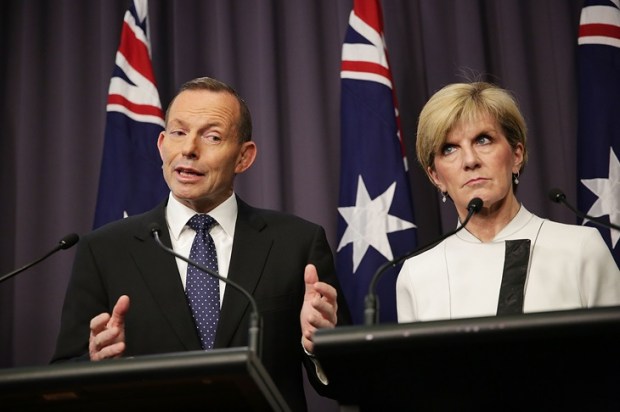
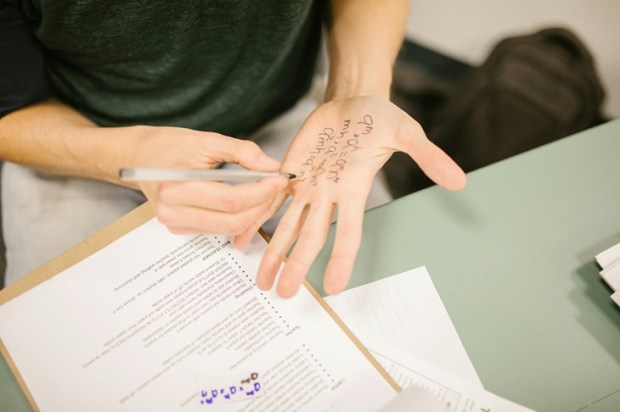

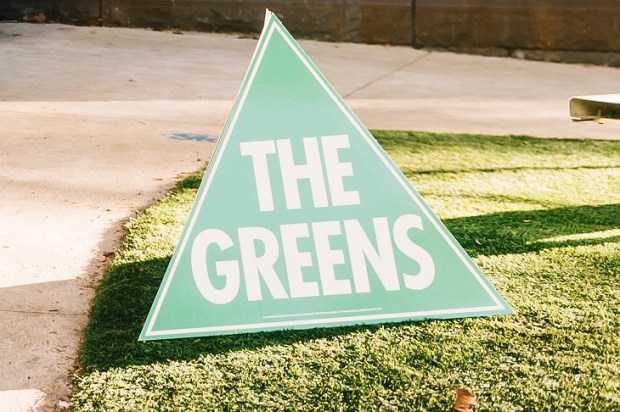


















Comments
Don't miss out
Join the conversation with other Spectator Australia readers. Subscribe to leave a comment.
SUBSCRIBEAlready a subscriber? Log in